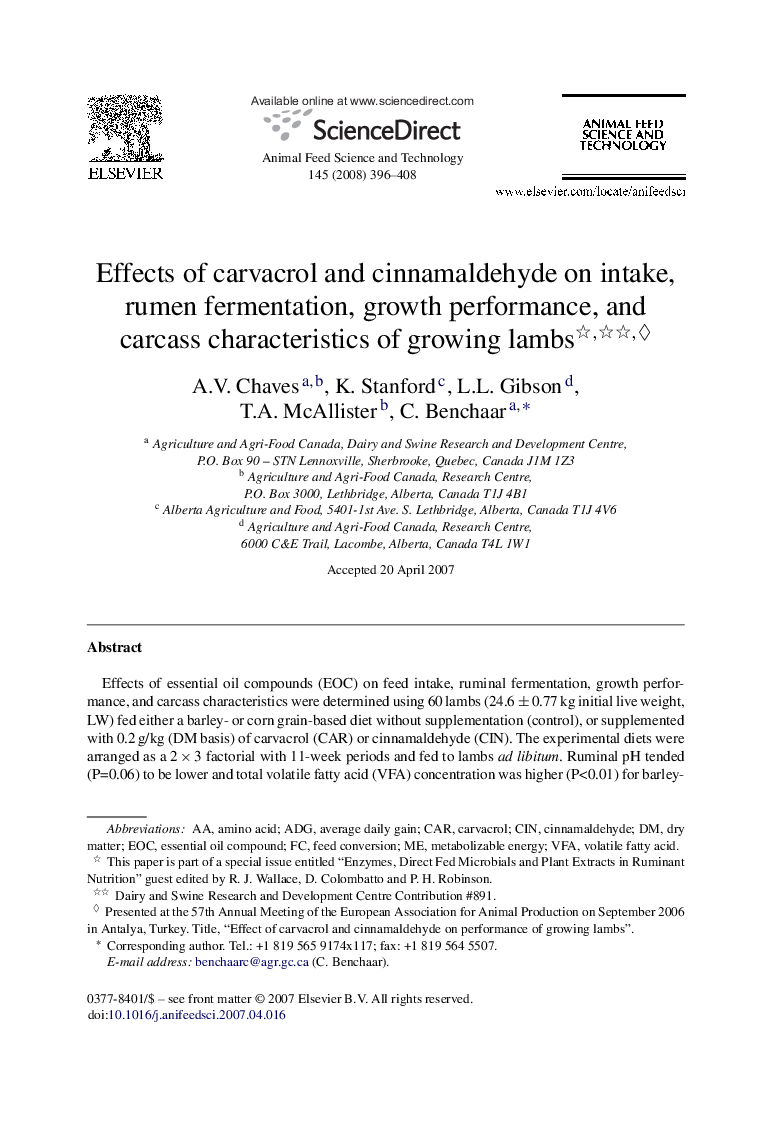| Article ID | Journal | Published Year | Pages | File Type |
|---|---|---|---|---|
| 2420649 | Animal Feed Science and Technology | 2008 | 13 Pages |
Effects of essential oil compounds (EOC) on feed intake, ruminal fermentation, growth performance, and carcass characteristics were determined using 60 lambs (24.6 ± 0.77 kg initial live weight, LW) fed either a barley- or corn grain-based diet without supplementation (control), or supplemented with 0.2 g/kg (DM basis) of carvacrol (CAR) or cinnamaldehyde (CIN). The experimental diets were arranged as a 2 × 3 factorial with 11-week periods and fed to lambs ad libitum. Ruminal pH tended (P=0.06) to be lower and total volatile fatty acid (VFA) concentration was higher (P<0.01) for barley- versus corn-based diets. Addition of EOC reduced (P=0.02) ruminal pH and increased (P=0.03) total VFA concentration versus the control. Acetate and propionate molar proportions and ammonia concentration did not differ among treatments. Inclusion of EOC in barley- or corn-based diets did not alter dry matter intake or average daily gain of lambs. Lambs fed the control diets tended (P=0.10) to have lighter livers than those fed diets containing EOC. Neither type of grain nor inclusion of EOC substantially affected sensory attributes of lamb sirloins.
